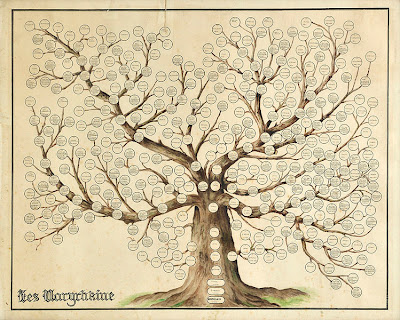A fascinating book well worth the time it takes to read it:
I was loaned a paperback copy, circa 1962. I see copies exist for sale and that there is a full text available for free (as above) so I'll start by saying that the author was respected and that the information is still valid as it was heavily researched and wonderfully transmitted. Translated from French, this book is a lot about France, with small references to other European countries and starts with the Middle Ages and moves forward into the 19th century. Most likely, though things developed along the same path in various countries, when is the question.
Childhood as a state of being separate from adulthood developed over a few hundred years until it is what it is today. Families experienced their children's deaths frequently, especially in infancy and early childhood, but there's a question about how emotionally involved they might be. Paintings depict children who have died as family members though distant memories. At the same time the death of a child was supposed to be aligned with the desire for a replacement.
Children "played" for a short while in their early years and then were considered to be adults. They participated in adult activities as their development allowed and that meant work. Of course, before compulsory education that was work around the house and farm or workshop with parents and other adults as teachers. At the same time housing didn't allow much for private spaces. So a person became aware of the realities of life in their place and time by observation and being expected to participate.
Over the years education as a destination, a place to go and be taught by a Master, such as boarding schools, developed. The "grade" one was in also had more to do with when one began schooling or what one already knew than age and so students at the same level could have a wide range of ages in the classroom. Depending on one's class or status the expectations and affordability varied quite a bit. The house developed into a dwelling with rooms and with separate rooms developed the idea that one had a right to privacy. One might sleep on the floor of the school along with other students and the teachers.
Clearly children also were aware of sexuality and may have participated in it without the expectations of a future age.
If you're like me and want to be left alone to read; for most of known history this would have been an impossibility especially for a woman. And yet over time a distinction was made between a person who becomes educated and then graduates to a life long learner (me again).
C 2019 Ancestry Worship BlogSpot


 Raymond G. Dobard and Jacqueline L. Tobin -authors
Raymond G. Dobard and Jacqueline L. Tobin -authors
